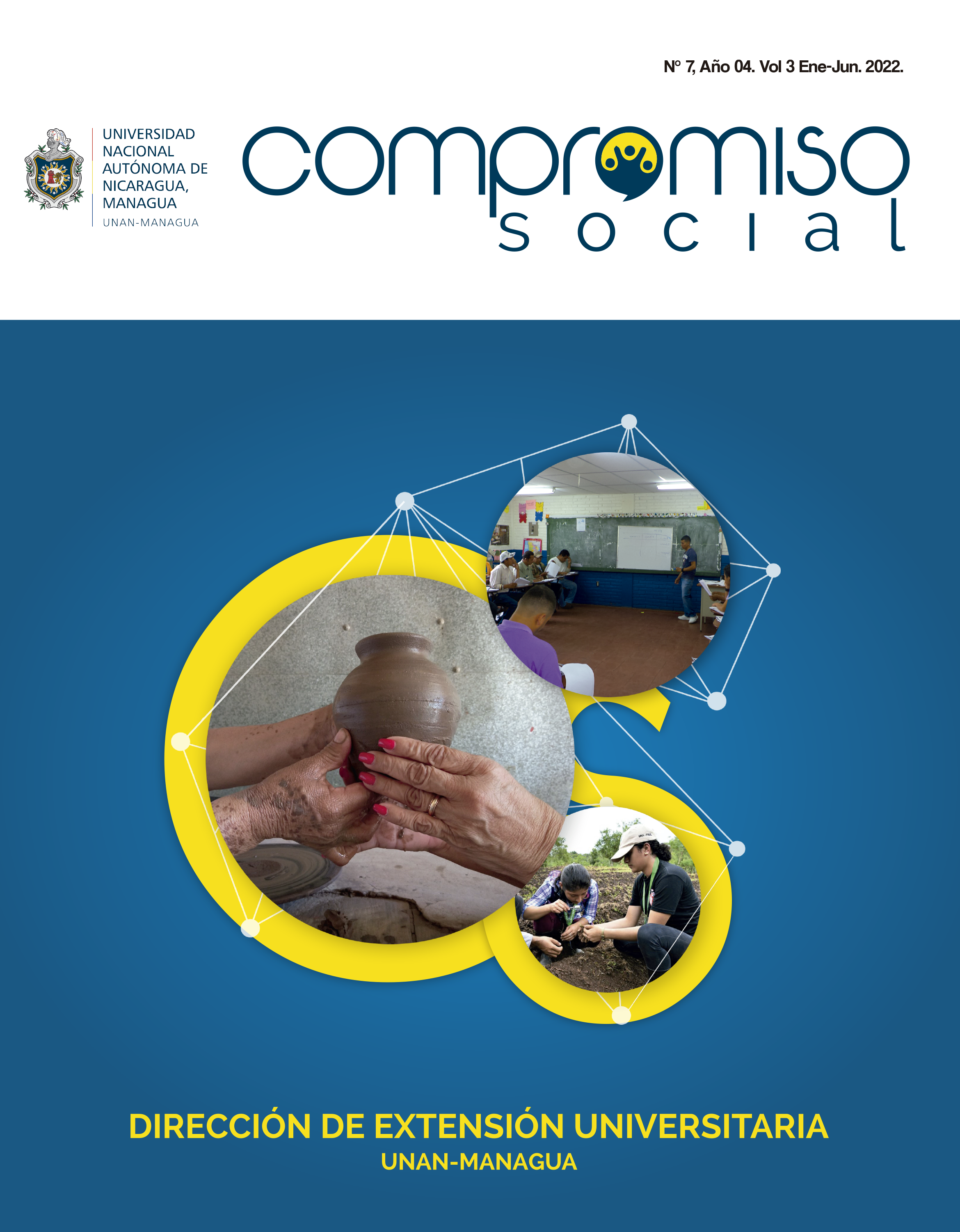Generating local capacities: UNICAM, a socio-educational practice
DOI:
https://doi.org/10.5377/recoso.v3i7.18650Keywords:
UNICAM, dialogue of knowledge, socio-educational, critical extension, life projects, social bondingAbstract
This article is the product of an investigation carried out by the group of authors in the months of January and March 2022 within the framework of the "Central American Network of Research in Critical Extension (RECIEC)". Among the defined objectives of the network, it was proposed to develop a regional program of comprehensive practices and knowledge dialogues in territories from a Critical Extension approach. This with the purpose of providing a social response to the effects and consequences of the current situation violated by the COVID-19 pandemic. In this case, the results would become a practical tool that would contribute to the implementation of a regional agenda of extension/linkage/social promotion in Central American universities for the promotion of territoriality, risk management and local development, prioritizing attention of the situation generated by COVID-19. In this sense, each University immersed in the research had to choose its field of action, which in the case of UNAN-Managua, was the University Program in the Countryside (UNICAM), carrying out a field visit in the months of January and February. From 2022 to the territories of Madriz, Estelí and Matagalpa, pioneer territories in the UNICAM issue. The idea of this was to verify the management proposals of the extension/linkage/social projection from the communities and with the community from the Critical Extension approach. Through this extensionist experience in the territories, concepts and contents related to Critical Extension were concretized from an integral vision, emphasizing the dialogue of knowledge with the actors of the communities, the participatory construction of the processes of intervention, development and social change through life projects or high-impact social enterprises, the integrality of the substantive functions of the university and the search for the improvement of the quality of life of the communities for the integral management of the risk of disasters and the effects of climate change. In this sense, University Extension stands out as an integral process in university education, which can be directed to the community in particular and to society in general, aimed at linking the university with society, through actions that include the dissemination and extension of humanism, everyday life, science, technology and other manifestations of culture, which is complemented by multidisciplinary practices and knowledge that strengthen the construction of an inclusive vision, which sometimes exceeds the expected results, compared to the traditional, where communication, dialogue of knowledge and socio-educational practice is part of a contextualized strategy for the search for alternatives for social transformation and local development.
1003
References
Ridruejo, Alejandra (coord.) (2021). Apuntes sobre Experiencias en Extensión. Cuadernos feministas para la transversalización 4. 1ª ed. Rosario: UNR Editora.
Saforcada, Fernanda (2022). La privatización de la Universidad en América Latina y el Caribe/ Fernanda Saforcada; Daniela Atairo; Lucía Trotta. 1ª ed. Ciudad Autónoma de Buenos Aires: CLACSO; IEC-CONADU.
PROGRAMA APEX. Universidad de la República de Uruguay (2021). Pandemia, Territorio y Extensión. Compilación de Relatos, Experiencias y Análisis vinculados a la extensión en territorio durante la pandemia de COVID-19. Facultad de Arquitectura, Diseño y Urbanismo. Montevideo, Uruguay.
Visita_territorios_RECIEC_08042022-vf.pdfGenerando capacidades locales: UNICAM, una práctica socioeducativa




